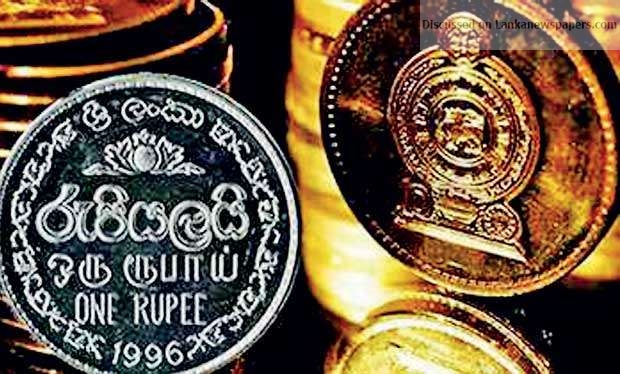

The Sri Lankan rupee ended weaker yesterday amid pressure on the currency due to foreign outflows from bonds and stocks as uncertainty from a lingering political crisis weighed on sentiment.
On Thursday, the Supreme Court ruled that President Maithripala Sirisena’s decision to dissolve parliament ahead of its term was unconstitutional, in a setback for the embattled leader in his dispute with an ousted Prime Minister.
If a budget is not approved by parliament this month, the government might face a shutdown, government officials have told Reuters.
Foreigners were net buyers for the first time in 14 sessions yesterday, buying a net Rs. 56.6 million (US$ 314,969) worth of stocks. But they have been net sellers of Rs.10.6 billion since the political crisis began on Oct. 26.
The bond market saw outflows of about Rs.56 billion between Oct. 25 and Dec. 14, Central Bank data showed. The rupee ended at 179.90/180.10 per dollar, compared with 179.55/75 the previous session. Credit rating agencies Fitch and S&P downgraded Sri Lanka’s sovereign rating last week, citing refinancing risks and an uncertain policy outlook, after Sirisena’s sacking of his Prime Minister in October triggered the political crisis. This year, there have been Rs.20 billion of outflows from stocks and Rs.148.2 billion from government securities, the latest data from the bourse and Central Bank showed.
The rupee hit a record low of 180.85 to the dollar on Nov. 28. It has weakened about 3.8 percent since the political crisis began. The currency fell 1.8 percent in November. It has lost 17.1 percent this year.
Moody’s downgraded Sri Lanka on Nov. 20 for the first time since it started rating the country in 2010, blaming the political turmoil for aggravating its already problematic finances.
The political paralysis remains the main concern for investors since Sirisena abruptly sacked Ranil Wickremesinghe as the Prime Minister and replaced him with Mahinda Rajapaksa, who was later voted out twice in parliament through confidence votes.
Five-year government bond yields have risen 60 basis points since the political crisis began, while yields on Sri Lanka’s dollar bonds due in 2022 have risen around a percentage point to 8.21 percent since then.
The Colombo stock index ended 0.04 percent up at 6,062.55 yesterday. Turnover was Rs.296.8 million, well below this year’s daily average of Rs.824.6 million.
Colombo Chief Magistrate Asanga S. Bodaragama ordered the Director of the Police Narcotics Bureau to…
The Sri Lankan passport which ranked at 91 among 105 countries dropped a further 6…
Minister of Foreign Affairs, Vijitha Herath, along with the Minister of Industry, Sunil Handunneththi, and…
A businessman has been arrested by the police on suspicion of selling illegally imported cigarettes…
The second day of Disrupt Asia 2025, Sri Lanka’s premier startup conference and innovation festival…
An earthquake of 3.9 magnitude was recorded on Thursday (18) in the sea area off…